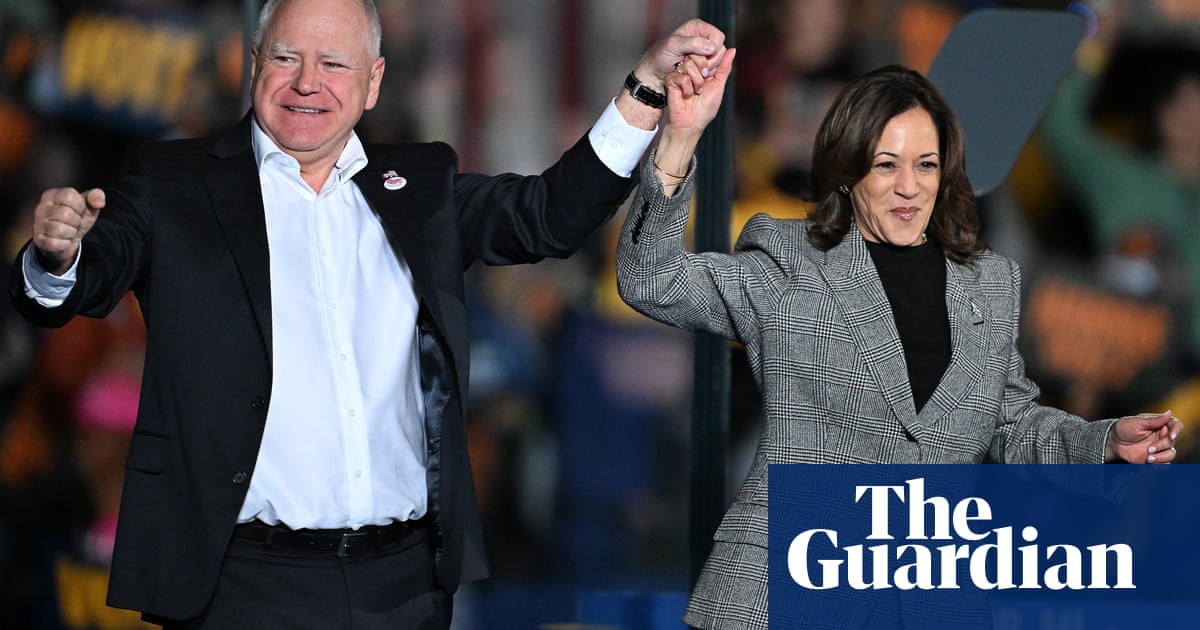Summary
Minnesota Governor Tim Walz has criticized the Harris-Walz 2024 presidential campaign for playing it too “safe,” saying they should have held more in-person events and town halls.
In a Politico interview, Walz—known for labeling Trump and Vance as “weird”—blamed their cautious approach partly on the abbreviated 107-day campaign timeline after Harris became the nominee in August.
Using football terminology, he said Democrats were in a “prevent defense” when “we never had anything to lose, because I don’t think we were ever ahead.”
While acknowledging his share of responsibility for the loss, Walz is returning to the national spotlight and didn’t rule out a 2028 presidential run, saying, “I’m not saying no.”



In the context of presidential elections? I guess I do. The US is supposed to be a country of countries, so governors should be decided by popular vote as they are the ones who will have the most direct effect on the lives of people. The president was originally intended mostly to oversee big picture stuff that affected all of the states, and as such all the states needed to have equal say in the president. Which is why the states elect the presidents via the electoral college.
Of course the problem is, once more, that the executive branch and the federal government have expanded their power so much that their policies have more effect than original intended over the daily lives of people and understandably people would like to be able to influence that. So for me there’s really only two solutions: we walk back things to their original intent or we might as well start an entirely new system because ours is not designed to work with all this added power.
The reason I agree with the usually right wing idea of restoring the original power structures is that I have seen enough evidence to believe that strong state sovereignty is the best way to go. It’s a very good foil to authoritarianism because power is concentrated at the lower levels. Right now if Trump and Co. manage to completely take over, they will still have a hard time doing everything they want because States have tools to defend themselves against the federal government. But it’s also a “freer” system as it also allows people to move from state to state and choose the one that most aligns with their views instead of a singular vision being imposed from the top down.
There’s a reason that the country abandoned that approach, despite virtually everyone being ideologically committed to it: it doesn’t work in practice. Time and time again in this country’s history, people tried the decentralized, weak federal government but then we faced crises that could only be solved with a stronger and more centralized federal government. Whether it was the Articles of Confederation being unable to pay soldiers from the Revolution, or states seceding and starting a war because the elites felt their interests were going to be threatened someday if they didn’t, or the Great Depression - despite being the “face” of big government, FDR was actually quite restrained in the New Deal and tried at times to roll parts of it back (resulting in harm to the economy), and it was only WWII that gave an excuse to do the kind of government spending necessary to recover - or desegregation, where the federal government had to deploy troops to force schools to integrate. Your approach was tried again and again and it failed again and again, and the reason we don’t have it anymore is that it’s fundamentally dysfunctional.
You can’t just decide what the best policy is through pure reason, you have to look at what’s been tried and what happened. Like, point me at any point in the country’s history where the problem was not enough state’s rights and a too powerful federal government as opposed to the opposite.